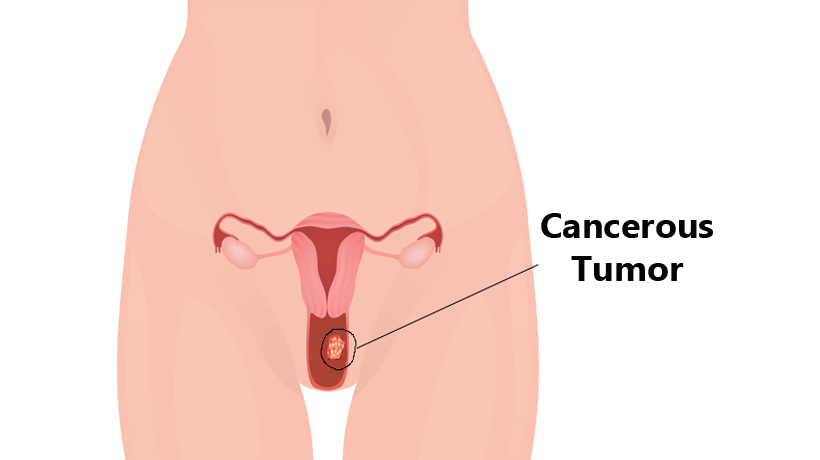With all the talk of breast cancer and cervical cancer, another very important type of cancer that is less recognized but also affects women is vaginal cancer. While several types of cancer can spread to your vagina from other places in your body, cancer that begins in your vagina is rare. While you might expect something as serious as cancer to exhibit major symptoms, early vaginal cancer may not cause any signs and symptoms. However, as it progresses, there are key developments to watch out for.
The most common type is vaginal squamous cell carcinoma which begins in the thin, flat cells that line the surface of the vagina. Vaginal adenocarcinoma starts in the glandular cells on the surface of your vagina. Vaginal melanoma develops in the pigment-producing cells (melanocytes) and vaginal sarcoma starts in the connective tissue cells or muscles cells in the walls of your vagina.
While discussing discomfort or changes in your vagina or vulva may feel awkward, it’s a subject that should not be overlooked. To take care of yourself, talk to your doctor if you’re experiencing any of these signs.
Symptoms
While early vaginal cancer often has zero signs and symptoms, as it progresses, vaginal cancer may cause signs and symptoms such as:
- Unusual vaginal bleeding after sex or menopause
- Watery discharge
- A lump or mass in your vagina
- Frequent or painful urination
- Constipation
- Pelvic pain
Since these symptoms can accompany a variety of other disorders, it’s very important to bring these and any changes that have occurred in the vaginal area to a doctor. Since vaginal cancer doesn’t always cause signs and symptoms, follow your doctor’s recommendations about when you should have routine pelvic exams.
Risk factors
It’s not clear what causes vaginal cancer. In general, cancer begins when healthy cells acquire a genetic mutation that turns normal cells into abnormal cells. Vaginal cancer is pretty rare, but it is more common in women over the age of 60. However, even if you’re on the younger side, you should still be vigilant for this type of cancer.
According to the Mayo Clinic, one of the top health resources in the United States, being diagnosed with vaginal intraepithelial neoplasia (VAIN) increases your risk of vaginal cancer. With VAIN, cells in the vagina appear different from normal cells, but not different enough to be considered cancer. A small number of those with VAIN will eventually develop vaginal cancer, though doctors aren’t sure what causes some cases to develop into cancer and others to remain benign. VAIN is frequently caused by the sexually transmitted human papillomavirus (HPV), which can cause cervical, vaginal and vulvar cancers, among others. Other risk factors include having multiple sexual partners, early age at sexual intercourse, smoking, and HIV infection.
Ways to reduce risk
While there’s no exact method of prevention of contracting vaginal cancer, there are some ways to reduce your risk. For one, undergo frequent pelvic exams and Pap tests to screen for early signs of the disease. Additionally, receiving a vaccination to prevent HPV infection may reduce your risk of vaginal cancer and other HPV-related cancers. Avoid smoking, as this increases your risk.
Sources:
https://www.mayoclinic.org/diseases-conditions/vaginal-cancer/symptoms-causes/syc-20352447
https://www.womenshealthsa.co.za/health/vaginal-cancer/
https://www.betterhealth.vic.gov.au/health/ConditionsAndTreatments/vaginal-cancer
https://www.cancercenter.com/cancer-types/vaginal-cancer



